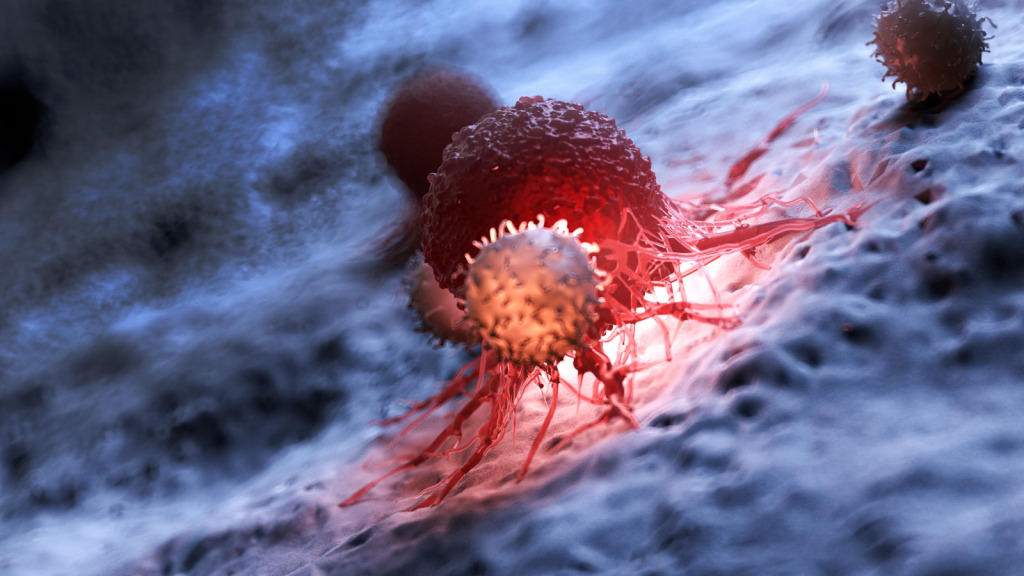Unconventional T Cells Known As Mucosal-Associated Invariant T (MAIT) And Invariant Natural Killer T (Inkt) Cells That Play A Role In COVID-19 Severity
Source: COVID-19 And Unconventional T Cells Sep 04, 2020 5 years, 1 month, 1 week, 5 days, 41 minutes ago
French researchers have discovered that a class of immune cells known as
unconventional T cells (uT cells) plays a role in the progression of COVID-19 disease into its severity forms. Furthermore it was proposed that these unconventional T Cells could be also used as biomarkers to determine COVID-19 severity risks.

So called unconventional T cells are a diverse class of immune cells that help control the response to viral infection and are commonly found in the lungs and other mucosal tissues in the body.
Dr Christophe Paget, a researcher at the INSERM Research Center for Respiratory Diseases, University of Tours told Thailand Medical News, "Despite this, the role of unconventional T cells in the pathophysiological process of SARS-CoV-2-driven ARDS has not yet been explored but that monitoring the activity of these cells in the blood of patients could predict the severity and course of the disease.”
The research findings were published in the Journal of Experimental Medicine.
https://rupress.org/jem/article/217/12/e20200872/152073/Phenotypical-and-functional-alteration-of?searchresult=1
Although most individuals infected with the COVID-19 experience relatively mild symptoms, some patients mount an aberrant inflammatory response that can damage the lungs and cause acute respiratory distress syndrome (ARDS), potentially resulting in the patient's death.
To date however, the immune cells and inflammatory molecules responsible for ARDS associated with COVID-19 remain unclear.
Dr Paget and colleagues, including co-lead author Dr Youenn Jouan, an intensivist at the academic hospital of Tours, examined 30 patients admitted to intensive care with severe COVID-19 and compared the immune cells in their blood and lungs to those found in healthy volunteers or patients admitted to the ICU for reasons other than COVID-19.
Significantly, the study team found that two types of unconventional T cells known as mucosal-associated invariant T (MAIT) and invariant natural killer T (iNKT) cells were dramatically reduced in the blood of patients with severe COVID-19.
Interestingly however the number of MAIT cells increased in the patients' airways, suggesting that these cells might move from the blood to the lungs to control the response to SARS-CoV-2 infection.
It was observed that the MAIT and iNKT cells of COVID-19 patients appeared to be highly activated and produced distinct sets of inflammatory molecules.
The study team found that patients whose circulating MAIT and iNKT cells were particularly active at the time of their admittance to the ICU were less susceptible to hypoxemia or low blood oxygen levels and were discharged sooner than patients whose MAIT and iNKT cells were less active.
Dr Jouan added, "This suggests that MAIT and iNKT cells might play a beneficial role during severe COVID-19, although their precise functions and associated mechanisms require further
investigation."
Dr Paget further added, "Altogether, our findings should encourage further studies on MAIT and iNKT cells in SARS-CoV-2-induced ARDS to assess their potential as biomarkers and/or targets for immune intervention strategies.”
The study summarized that severe COVID-19 influences the phenotype and function of unconventional T cells (uT cells).
The team says that it will be of interest to evaluate whether these parameters are influenced in different presentations of SARS-CoV-2 infection (i.e., mild and/or moderate). In addition, comparative analyses in pneumonia-induced ARDS patients of other microbiological origin will be informative to better gauge the SARS-CoV-2 specificity of the study findings.
In any case, the study’s comparative analysis between the systemic (blood) and local (airways) compartment points toward localized inflammation and raises the possibility that activated MAIT cells may migrate into the inflamed tissue.
As shown in other viral infections, MAIT and iNKT cell activation during SARS-CoV-2 infection is likely antigen independent and may be driven by IL-18. Of importance, the levels of activation as judged by CD69 expression on MAIT and iNKT cells appear predictive of the clinical course.
https://www.pnas.org/content/113/36/10133 and
https://www.nature.com/articles/ncomms11653
The findings suggest a beneficial role for MAIT and iNKT cells during severe COVID-19, although their precise functions and associated mechanisms warrant further investigation.
Also it is noteworthy that neither IFN-γ nor IL-17A secretion correlates with the positive evolution of clinical parameters, raising the possibility that uT cells could play a protective role through other functions such as the role of tissue repair and regeneration.
https://pubmed.ncbi.nlm.nih.gov/30116242/ and
https://www.cell.com/cell-reports/pdfExtended/S2211-1247(19)30936-2 and
https://www.cell.com/cell-reports/fulltext/S2211-1247(19)31102-7?_returnURL=https%3A%2F%2Flinkinghub.elsevier.com%2Fretrieve%2Fpii%2FS2211124719311027%3Fshowall%3Dtrue and
https://www.cell.com/cell-reports/fulltext/S2211-1247(19)31098-8?_returnURL=https%3A%2F%2Flinkinghub.elsevier.com%2Fretrieve%2Fpii%2FS2211124719310988%3Fshowall%3Dtrue
The study findings encourages for further studies on MAIT and iNKT cells in pneumonia-induced ARDS to assess their potential as biomarkers and/or targets for immune intervention strategies.
For more about
COVID-19 and unconventional T Cells, keep on logging to Thailand Medical News.
